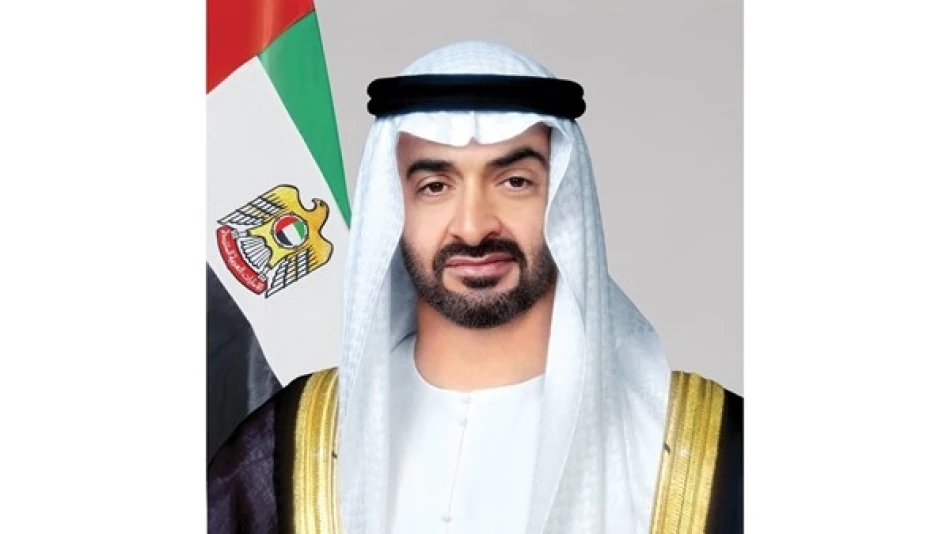
UAE President Arrives at Parliament, Welcomed by Hungarian Counterpart
UAE President Begins High-Level Diplomatic Mission to Hungary with Parliamentary Reception
UAE President Sheikh Mohammed bin Zayed Al Nahyan arrived in Budapest today for an official state visit to Hungary, receiving full ceremonial honors at the Hungarian Parliament. The visit, marked by formal military ceremonies and high-level diplomatic protocol, signals deepening ties between the Gulf nation and the Central European country as both nations seek to diversify their economic and strategic partnerships beyond traditional spheres.
Ceremonial Welcome Reflects Growing Bilateral Importance
Hungarian President Tamás Sulyok personally welcomed Sheikh Mohammed bin Zayed at the Parliament building, where the UAE leader received full state honors in Kossuth Lajos Square. The ceremony included a mounted cavalry escort, national anthems of both countries, and an honor guard inspection—diplomatic pageantry typically reserved for visits of significant strategic importance.
The formal reception underscores Hungary's growing emphasis on building economic bridges with Gulf states, particularly as European nations seek energy security and investment diversification following recent geopolitical shifts. For the UAE, Hungary represents a strategic gateway into Central Europe and the broader European Union market.
High-Powered Delegation Signals Serious Business Intent
The composition of Sheikh Mohammed bin Zayed's delegation reveals the visit's substantial scope beyond ceremonial diplomacy. The entourage includes key economic and strategic figures: Dr. Sultan Al Jaber, Minister of Industry and Advanced Technology and COP28 President; Dr. Thani Al Zeyoudi, Minister of Foreign Trade; and Khaldoon Al Mubarak, CEO of Mubadala Investment Company and Chairman of the Executive Affairs Authority.
This ministerial lineup suggests discussions will likely center on energy cooperation, advanced technology partnerships, and significant investment opportunities. The inclusion of Al Jaber particularly points to potential collaboration in renewable energy and climate technology—areas where both nations have shown increasing interest.
Strategic Timing in Shifting Global Dynamics
The visit comes as Hungary pursues its "Eastern Opening" policy, seeking stronger economic ties with non-Western partners while maintaining EU membership. Prime Minister Viktor Orbán's government has actively courted Gulf investment, viewing UAE capital as crucial for infrastructure development and economic modernization.
For the UAE, Hungary offers several strategic advantages: EU market access, a business-friendly regulatory environment, and a government willing to engage pragmatically with Gulf partners. This aligns with the UAE's broader strategy of building diverse international partnerships that transcend traditional geopolitical alignments.
Economic Implications and Investment Potential
Hungary's economy, while growing, requires significant capital investment in technology, infrastructure, and energy transition. The UAE's sovereign wealth funds, particularly Mubadala and ADQ, have demonstrated appetite for European investments, especially in sectors aligned with the UAE's economic diversification goals.
Potential collaboration areas likely include renewable energy projects, where Hungary aims to reduce dependence on Russian energy supplies, and advanced manufacturing, where UAE investment could help Hungary move up the value chain. The UAE's expertise in logistics and trade facilitation could also benefit Hungary's position as a regional distribution hub.
Broader Regional Context
This diplomatic engagement reflects a broader trend of Gulf states expanding their European partnerships. Similar to UAE relationships with countries like Greece and Italy, the Hungary visit represents calculated relationship-building that serves both nations' strategic interests while remaining largely divorced from broader geopolitical tensions.
The success of this visit could establish a template for UAE engagement with other Central European nations, potentially creating a new axis of economic cooperation that benefits both regions' long-term development goals.
Most Viewed News

 Layla Al Mansoori
Layla Al Mansoori






